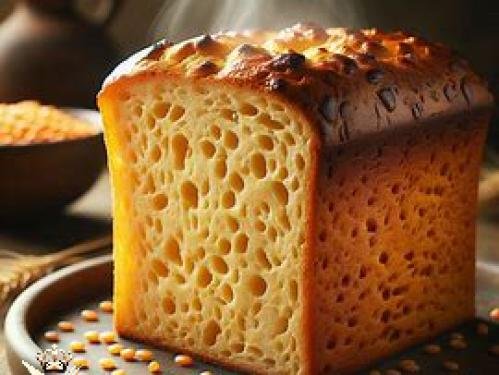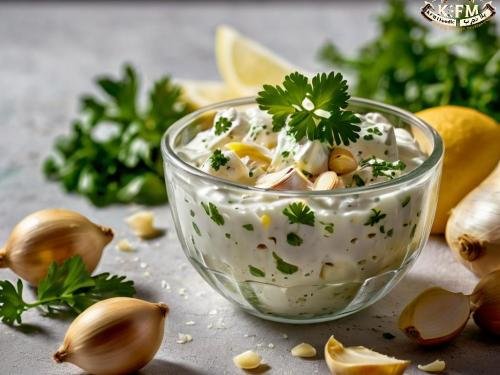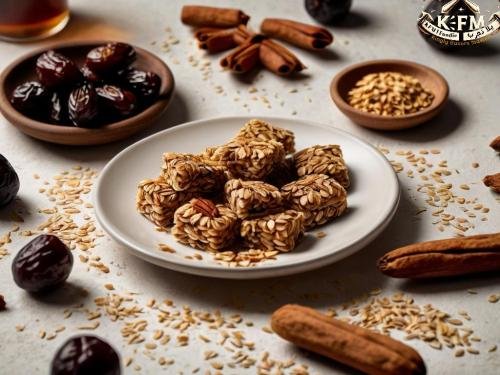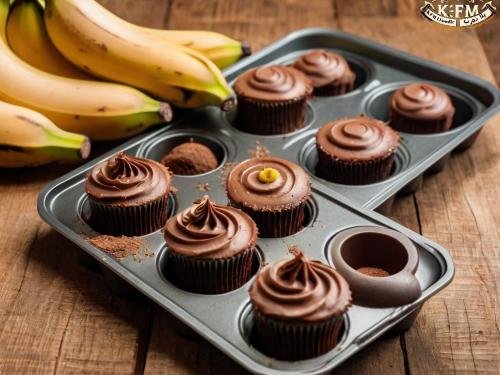Basbousa is one of the most popular Middle Eastern desserts loved by many in the Arab world. It is known for its delicious taste and moist texture, making it a preferred choice for many occasions. With the growing awareness of health and dietary concerns, it has become essential to offer healthier versions of these traditional desserts. Therefore, we present to you the "Diet Basbousa" recipe, which includes healthy ingredients such as coconut oil and low-fat yogurt, along with a sugar alternative like Stevia to reduce calories while maintaining the delicious taste. Using healthy semolina, Greek yogurt, and coconut, you can prepare a tasty and nutritious dessert, rich in vitamins like vitamin B in semolina, calcium, and proteins in Greek yogurt, and healthy fats in coconut. Additionally, using diet sugar or honey reduces the added sugar content, making it an ideal choice for those following a low-calorie diet.
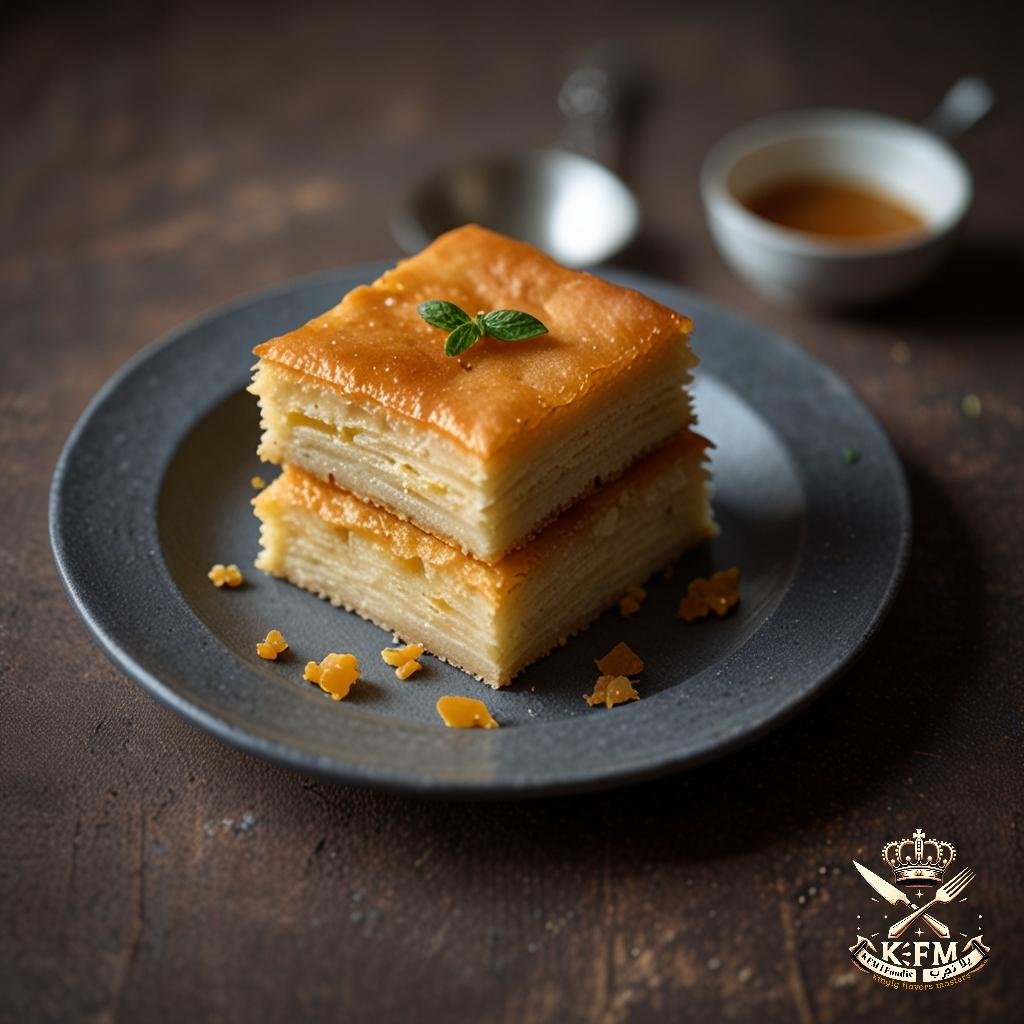 Ingredients:
Ingredients:
- 1 cup semolina
- 1 cup Greek yogurt
- 2 tablespoons coconut
- Diet sugar or honey, to taste
- 1 tablespoon baking powder
- Half a cup of milk
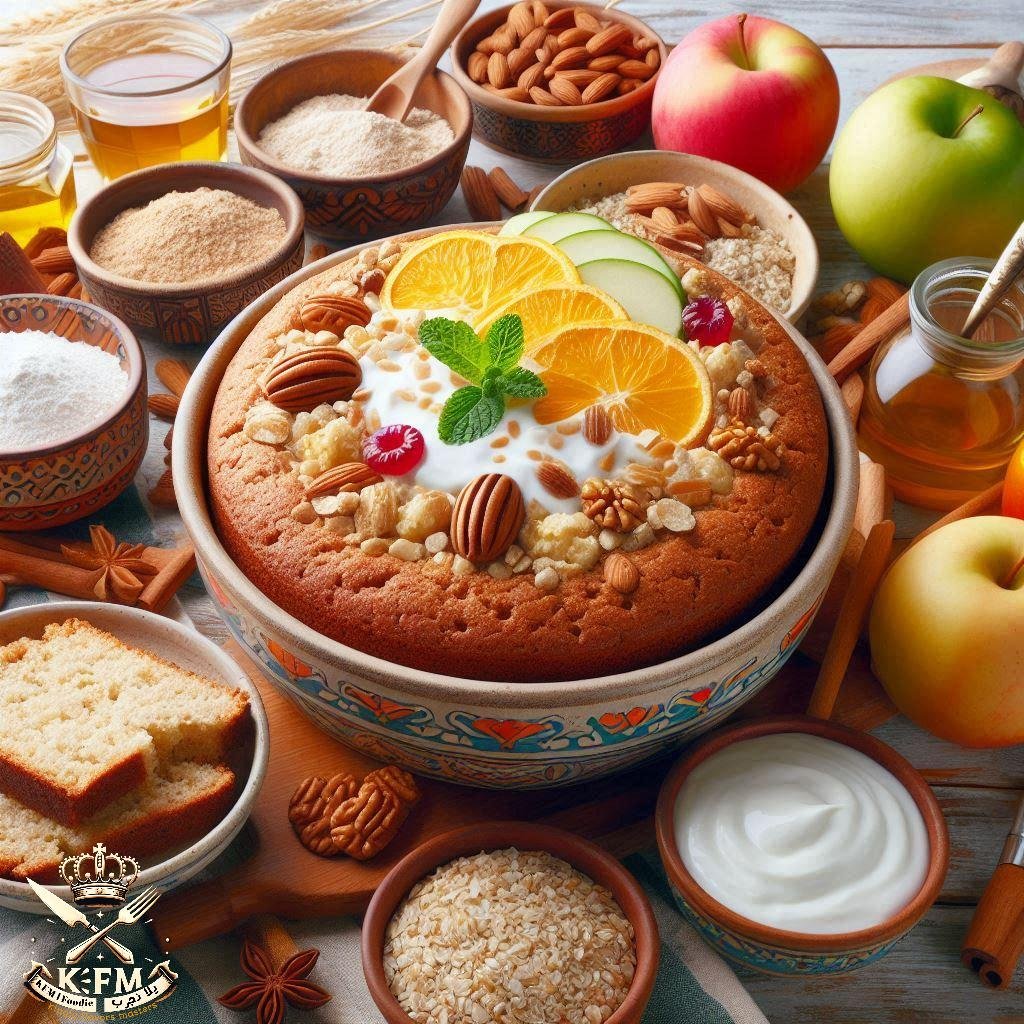 Syrup:
Syrup:
- 1 cup of water
- 1/2 cup of natural honey or sugar substitute
- Juice of half a lemon
Method:
- Mix the ingredients well together.
- Place the mixture in a mold to bake in the oven or air fryer.
- Bake in the oven for 25-30 minutes or until the top turns golden.
- While baking the basbousa, prepare the syrup by adding water, honey, and lemon juice to a pot over heat until it boils and heats up slightly.
- After removing the basbousa from the oven, pour the syrup over it while it’s still hot.
- Let it cool slightly, then serve.
- Optionally, add nuts on top for decoration.
Note: This recipe is suitable for those following a healthy or low-calorie diet, but it may not be suitable for people with allergies to certain ingredients like yogurt, coconut, or semolina.
Health Benefits:
Semolina: Rich in complex carbohydrates that provide sustainable energy for the body. It also contains fiber that helps improve digestion and regulate blood sugar levels.
Greek Yogurt: Contains high-quality proteins that assist in muscle building, as well as calcium necessary for bone health. The probiotics in it promote digestive health.
Coconut: Rich in healthy fats (beneficial saturated fats) that support heart health and improve cholesterol levels. It also contains antioxidants that help fight inflammation.
Diet Sugar or Honey: Provides sweetness without adding too many calories. Honey also contains antioxidants and antibacterial properties, which boost the immune system.
Baking Powder: Helps in leavening the batter and improving the texture of the basbousa, and it contains minimal calories.
Milk: A good source of calcium and protein, enhancing bone and muscle health.
Frequently Asked Questions (FAQ)
1. Can diet basbousa be served cold or should it be served warm?
Diet basbousa can be served either cold or warm, depending on your preference. Some people enjoy it warm right after it's out of the oven and topped with syrup, while others prefer letting it cool completely for a firmer texture and richer flavor.
2. Can I add flavors like saffron or rose water?
Yes, you can add a pinch of soaked saffron or a teaspoon of rose water or orange blossom water to the mixture for a distinctive and delightful Middle Eastern touch.
3. Can I use oat flour instead of semolina?
Yes, you can use oat flour, but it will alter the texture and flavor of the basbousa. To strike a good balance, you can mix semolina and oat flour in a 50-50 ratio.
4. What if I don’t have Greek yogurt?
You can use low-fat or fat-free plain yogurt instead. However, Greek yogurt has a thicker consistency and higher protein content. To mimic that texture, you can strain regular yogurt using a cheesecloth to remove excess liquid.
5. What if I don’t like the taste of coconut?
You can simply omit the coconut or replace it with ground nuts like almonds or hazelnuts, or even a spoonful of chia seeds for extra fiber.
6. Can I prepare diet basbousa without baking powder?
Yes, you can use a substitute like half a teaspoon of baking soda mixed with one teaspoon of lemon juice or white vinegar. However, the texture may not be as fluffy.
7. Is this recipe suitable for diabetics?
Yes, as long as you use a safe natural sweetener like stevia or erythritol and consume it in moderation while tracking carbohydrates as part of a diabetic-friendly diet.
8. Is this recipe suitable for vegetarians?
Yes, if you use plant-based alternatives for yogurt and milk, such as soy or almond yogurt and plant-based milk like oat or almond milk.
9. Is this recipe keto-friendly?
Not entirely, since it contains semolina and honey or regular sweeteners. However, you can modify the recipe by using almond flour and a keto-friendly sweetener (like erythritol) to make it more suitable for a keto diet.
10. Can I make the recipe without milk?
Yes, you can use a plant-based milk alternative like almond or oat milk. Just note that the flavor might slightly differ.
11. Is it suitable for kids?
Yes, it's a healthy option for kids, but make sure they are not allergic to any ingredients like yogurt or coconut. It's best to sweeten it with natural honey.
12. What is the difference in calories between regular basbousa and diet basbousa?
Traditional basbousa may contain around 1000 to 1200 calories per recipe, while the diet version has approximately 350 to 430 calories, making it a lighter and healthier choice.
13. Can I store diet basbousa? And for how long?
Yes, you can store it in an airtight container in the refrigerator for up to 3 days. If served cold, it's recommended to warm it slightly before eating.
Calories and Nutritional Values
1. Semolina (1 cup):
- Calories: About 150 calories
- Nutritional Values:
- Carbohydrates: 30g
- Protein: 5g
- Fat: 1g
- Fiber: 1.5g
2. Greek Yogurt (1 cup):
- Calories: About 100 calories
- Nutritional Values:
- Protein: 10g
- Carbohydrates: 6g
- Fat: 0g (for low-fat version)
- Calcium: 200mg
- Vitamins: Contains Vitamin B12 and Riboflavin
3. Coconut (2 tablespoons):
- Calories: About 60-70 calories
- Nutritional Values:
- Fat: 6g
- Carbohydrates: 2g
- Protein: 0.5g
- Fiber: 1g
- Minerals: Contains potassium and magnesium
4. Diet Sugar or Honey (to taste):
- Diet Sugar: Usually contains zero calories (calories vary depending on the type of sweetener used)
- Honey: 1 teaspoon (about 7g) contains 20-22 calories
- Nutritional Values for Honey:
- Carbohydrates: 5.5g
- Protein: 0g
- Fat: 0g
- Nutritional Values for Honey:
5. Baking Powder (1 teaspoon):
- Calories: About 2-3 calories
- Nutritional Values: Contains no carbohydrates or fats
- It helps improve the texture without adding calories.
6. Milk (half cup):
- Calories: About 40-50 calories (for non-fat version)
- Nutritional Values:
- Protein: 3g
- Carbohydrates: 6g
- Fat: 0g (for non-fat version)
- Calcium: About 150mg
Total Calories for the Diet Basbousa Recipe (approx.):
- Using Diet Sugar: About 350-400 calories for the entire recipe.
- Using Honey: About 380-430 calories for the entire recipe.
Note: These values depend on the specific ingredients used and may vary if different types of ingredients or quantities are used.














